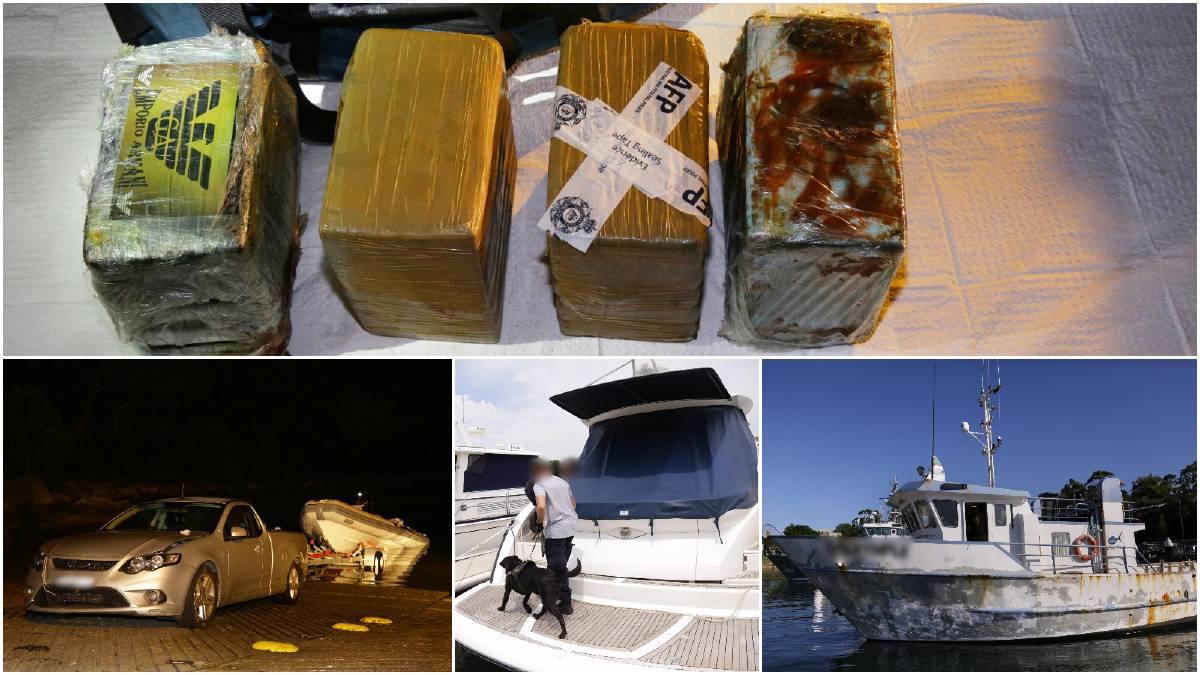
Australia’s largest cocaine bust: Shoalhaven Lawyers’ clients and South Coast fishermen ‘Not Guilty’
It’s a story with all the hallmarks of a blockbuster movie: An international drug syndicate involving a former rugby player, a Sydney entrepreneur, and a cohort of fishermen from the South Coast and Sydney Fish Markets, all of whom allegedly conspired to bring 2 tonnes of cocaine, worth around $1.4 billion, into Australia.
Shoalhaven Lawyers represented two South Coast fishermen who were among 15 people arrested after an extensive police operation, operation “Okesi”, involving specialist detectives and police from several international jurisdictions, as well as the Australian Border Force.
The fishermen were accused of travelling 236 nautical miles off the coast of Sydney to meet a Colombian submarine that was allegedly carrying 400kgs of cocaine. Both men were arrested and charged with conspiracy to import a commercial quantity of border-controlled drugs – the maximum penalty for which is life imprisonment.
Both men pleaded not guilty.
The backstory, and the court evidence
The court heard that on the night he was arrested – Christmas night, 2016 – Sydney and Ulladulla man, Joseph Pirrello, stood at a boat ramp in Brooklyn, north of Sydney, ready to unload one of Australia’s largest cocaine hauls which were being transported up the Hawkesbury in a dinghy.
It was the last of several attempts by the syndicate to import a large quantity of illegal drugs into Australia. Police had evidence to prove that the group had been working together for several years.
One of their previous attempts had been thwarted by bungled GPS coordinates, another by an innocent ship captain who turned the vessel around after discovering the true purpose (to pick up cocaine at sea) of the trip. By Christmas 2016, the French Navy had seized 600kgs of cocaine and customs officers in Fiji had seized 32kgs of heroin. It was common ground that all the drugs originated in South America before being transferred across the South Pacific by ship.
Then, when syndicate member Simon Spero arrived at Parsley Bay via dinghy from another boat off the coast of Sydney late Christmas night 2016, ready to transfer 500kg of cocaine to Pirrello, police pounced.
Joseph Pirrello, former Sydney Roosters football player John Tobin, and businessman Simon Spero were eventually sentenced to at least 14, 8½, and 9½ years behind bars respectively.
Shoalhaven Lawyers’ clients maintained their innocence throughout a 3-month Supreme Court jury trial and, on 23 December 2019, were found not guilty of any role within the syndicate. Of the 15 men arrested in operation Okesi, Shoalhaven Lawyers’ clients were the only 2 accused found not guilty. The other 13 co-accused were convicted and sentenced to many years behind bars.
The charges: conspiracy to import a commercial quantity of border-controlled drugs
In Australia, it is illegal to export or import border-controlled drugs. Serious drug offences, particularly importations, are rarely committed by one person. In most cases they involve multiple players working at different levels and in different ways, as a result, the Commonwealth Department of Public Prosecutions (CDPP) relies on extensions of criminal liability, involving conspiracy, joint commission, or accessorial liability in order to prosecute all those involved in importation.
Under the law, a ‘border-controlled drug’ is a list of drugs listed in Criminal Code Regulations 2019 (Cth). This includes methamphetamine, MDMA, cannabis, cocaine, GHB, and Heroin.
The penalty for committing this offence will depend on the quantity and type of drug involved. The higher the drug quantity, generally, the higher the penalty.
Conspiracy to import a border-controlled drug carries a penalty of up to life imprisonment under section 11.5 of the Criminal Code Act 1995 (Cth)
What the prosecution must prove
For a person to be found guilty, the prosecution must prove each of the following elements:
- the person entered into an agreement (to import drugs) with one or more other persons;
- the person and at least one other party to the agreement intended that an offence (to import drugs) would be committed pursuant to the agreement; and
- the person or at least one other party to the agreement committed an over act pursuant to the agreement.
Defending the charges
There are a number of defences to the charge, including but not limited to:
- A reasonable possibility that the defendant was not aware that the substance was a ‘border-controlled drug’.
- The defendant did not intend to import the drug;
- The defendant never agreed to import the border-controlled drug;
Defending a serious and complex drug charge requires a legal team that has specific knowledge and experience. If you have been charged with a drug offence, contact us.

Ted Neaves is the Principal Lawyer at Shoalhaven Lawyers. Clients benefit from Ted’s practical approach and in-depth understanding of litigation.




